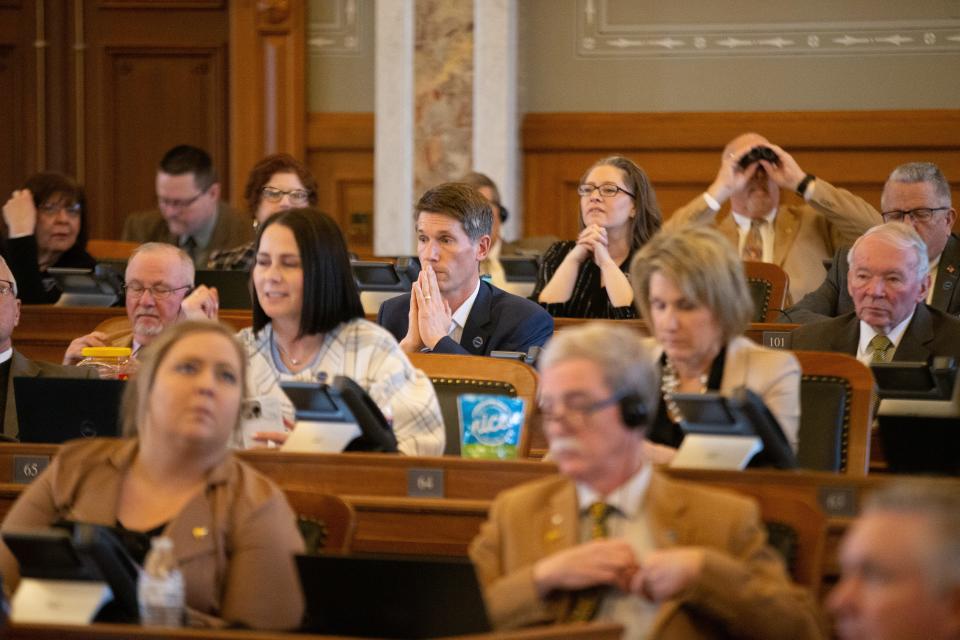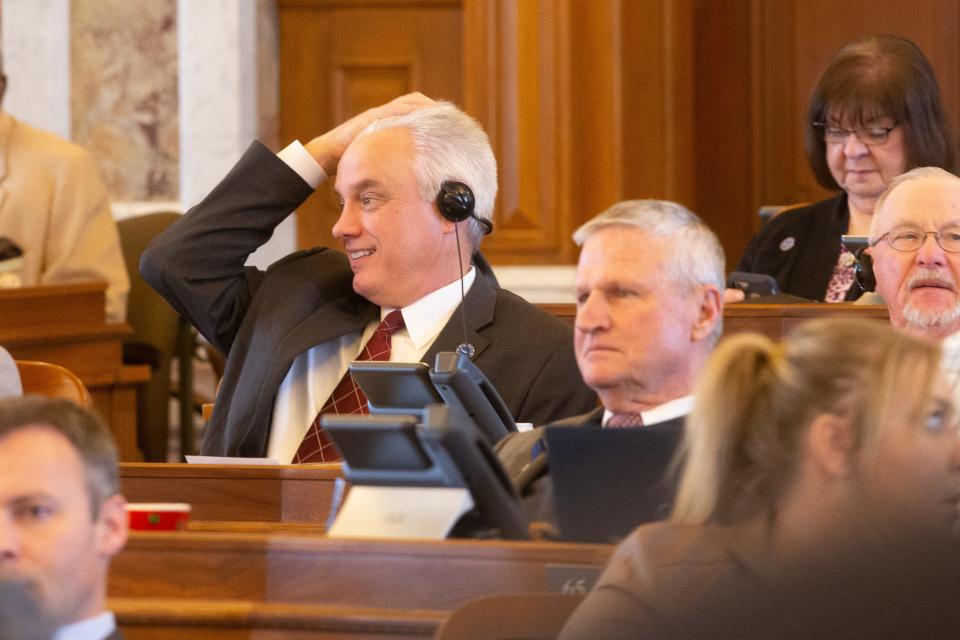After Kansas abortion vote, lawmakers advance bill requiring care for infants 'born alive'

Amid debate over abortion rights in Kansas, lawmakers approved a bill Wednesday that would require doctors to save infants born alive following an attempted abortion, despite pushback from opponents who dispute how often this occurs.
The Kansas House voted 88-34 to approve House Bill 2313, which would require that medical providers, in the event of live birth following an abortion, perform the life-saving care they would give other newborns. The vote would give lawmakers to support needed to overturn a potential veto from Gov. Laura Kelly.
Proponents argue the bill is necessary to ensure that a baby who could potentially survive an abortion will receive care.
The Kansas Department of Health and Environment does not presently keep data on babies being born alive in Kansas. Abortion providers and many medical groups insist it does not happen.
More:If you thought the abortion debate in Kansas ended with August amendment vote, think again
Jeanne Gawdun, a lobbyist for Kansans for Life, said that just because there are no documented cases of a baby being born alive in Kansas doesn't mean it doesn't happen, saying instead that it means individuals involved in the procedure are not coming forward to recount those events.
"People who are there in the room performing the abortion, the child's born alive, you're dependent on them to be able to report that," Gawdun said. "And with the absence of any type of legal penalty, what is the incentive to follow the law?"
But responding to similar legislation approved by the U.S. House of Representatives, the president of the American College of Obstetricians and Gynecologists said the effort was "not based in science or medicine."
"It is meant to incite emotions, rather than reflect the reality of evidence-based clinical care," Abbasi Hoskins said in a statement. "This legislative interference will harm families and hinder the ability of physicians to practice such evidence-based medicine."
'Born alive' abortion issue takes hold in Kansas, Congress

Currently, the anti-abortion group Family Research Council deems nine states to have "strong" born-alive protections, which generally mirror the provisions in the Kansas bill. Similar legislation was passed by the U.S. House in January and has been introduced in scores of other states in 2023.
In Kansas, HB 2313 would require that any child born during an abortion must be hospitalized immediately and said that doctors must "exercise the same degree of professional skill, care and diligence to preserve the life and health" of a child born after an attempted abortion as any other infant.
A 2002 federal law requires doctors to provide this care, but it lacks any form of criminal penalties. If a doctor violates the Kansas proposal, they could face felony charges or a civil action from the parents, though murdering an infant is presently against the law.
"I don't really see the need for this other than let's continue to shame a woman who is having to make these life decision choices," Rep. Susan Ruiz, D-Shawnee, the top Democrat on the House Health and Human Services Committee, said in an interview. "I won't be a part of it."
But Gawdun said that current laws on infanticide and child endangerment were not tailored specifically for this case.
"The penalties are very important because it's a deterrent," she said. "It's to help people who would really, who are those medical providers who say: 'I can't just stand here and, and watch this happen. I can't let this happen. I have got to do something.'"
In Kansas, most abortions are banned after 22 weeks gestation, which is before fetal viability occurs. That means any baby born before that point would not be able to survive outside the mother's womb.
A 2015 study published in the New England Journal of Medicine found that "active intervention for infants born before 22 weeks of gestation is generally not recommended," though it acknowledged the decisions are "extremely difficult."

 Yahoo Autos
Yahoo Autos 